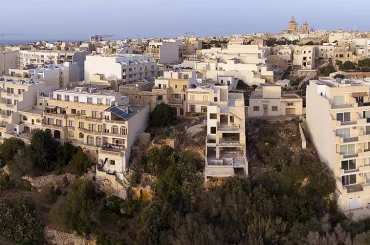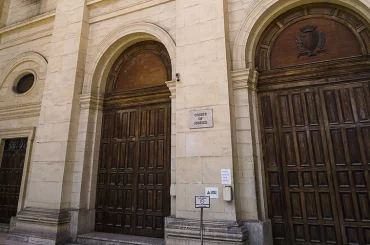The Malta Tourism Authority (MTA) recently promoted Malta for digital nomads by a picture of a lone woman sitting on the seashore in Comino, looking out across a swathe of azure sea and large blue sky. The blurb then said that digital nomads “can plug-and-play from anywhere they fancy”, and whether opting to work out of “a cool air-conditioned coffee shop or remote spot, toes dug deep into the sand, remote working in Malta is a breeze thanks to a strong IT infrastructure.”
It’s the wrong imagery and wrong promotion. And, as detailed in an article published on this website, it partly explains the poor response to Malta’s digital nomad residency visa that was launched at the beginning of last June.

In response to that article, the man who created the world’s most successful digital nomad village in Madeira, Gonçalo Hall, wrote in his LinkedIn account that Malta's poor results can be likened to “any [of the] other 59 countries with similar programme [that are] failing in the same fashion.”
Then he wrote about the “mismatch” between what governments are offering and what digital nomads seek. He said government are offering “nomad visa that most nomads don't need, tax breaks (most nomads will not pay taxes there), empty tourism pictures as promotion, and empty global promise on how good is to work from there.”
And what do nomads seek in a destination?
“Community, connection, nature, outdoor activities, and giving back.”
After the success in Madeira, Hall has been building a programme for Cape Verde, a cluster of islands in the Atlantic Ocean not far from Madeira. A recently-launched website has a simplicity that feels genuine. The website highlights the islands’ outdoorsy, wholesome way of life, as well as the community. The rules are simple, and people can fill in an application form on the page itself – no need to download anything.
By contrast, Malta’s website has a more slick, corporate feel, with a video created by a marketing agency that has little understanding of what gets digital nomads excited. And the paperwork appears dense; an application form has to be downloaded and filled in.
It is obvious which website is the more successful.
Branding has to fit the audience, and Malta has been pitching a residence permit for digital nomads while the set up and the branding speak to remote workers on higher earnings.

Malta is relatively expensive
One of the reasons why Malta has limited appeal to digital nomads is the cost of living. It is now on a par with cities such as Berlin, something that has emerged clearly in the latest Expat Insider 2021 survey published earlier this month. The survey is based on responses of 12,500 expats, registrants of InterNations, an online platform for expats around the world.
Malta has slipped dramatically down the ranking in the past few years, and this year found itself among the bottom 10 overall for the first time ever. On personal finance it ranked in slot 51 out of 59 countries surveyed, although on cost of living it ranked at 35 out of 59.
Rent, eating out, and supermarket prices have soared in Malta, putting the average digital nomad – according to report earlier this year, digital nomads earn an average of €18,750 annually – in a financial squeeze.
Environmental woes a drag
Malta ranked especially badly on Quality of Environment – it ranked in 56th place out of 59 countries. That poor showing is primarily due to the endless din of construction, and ghastly town planning that is turning once-pleasant streets of townhouses into claustrophobic streets hemmed by nondescript blocks of flats. Another reason is the petty lawlessness when it comes to litter and parking, as well as the noise and dust and traffic.
The high intensity of hunters also means that there is little peaceable countryside to escape to in the best times of the year for being outdoors – spring and autumn.
And for digital nomads and remote workers alike, the quality of the nature and outdoor activities are important.
So is corruption which, once it reaches a critical level, pervades other grievances, or becomes a self-fulfilling perception. It makes people interpret anything illogical or grievant as corruption, and then it started to wear you down.
Who are the remote workers coming to Malta?
Statistics on applicants of digital nomad residence permit given by Residency Malta last week reveal that the applicants, although small in number, have a relatively high income (€60,000 on average). Almost half are self-employed, and at least some of those may be partners or shareholders in businesses.
These seem to fit the profile that Gonçalo Hall envisaged when he told this website: “Entrepreneurs seem to love it [Malta] and consider moving their company there, so that should be the number one focus [of the programme].”
This kind of people are appreciative of Malta’s strengths: widespread use of English, relatively good regional flight connections, good health system and relative safety.
As for locations, some places – in the south of Malta, in Gozo – still offer relatively peaceable urban environments, indigenous culture and streetscapes, although these are fast disappearing.
But greylisting by the Financial Action Task Force puts a dampener.
For all these reasons, Malta is not getting its share of the market despite being one of the earlier countries to offer residence to digital nomads.
It is clear what the country has to do: tweak its approach, especially in marketing and in synchronising its setup up to the aspirations of its targetable market.
And then it has to work on the fundamentals: stop destroying the urban and natural environment, stop pandering to hunters and trappers, and seriously tackle pervasive corruption.






